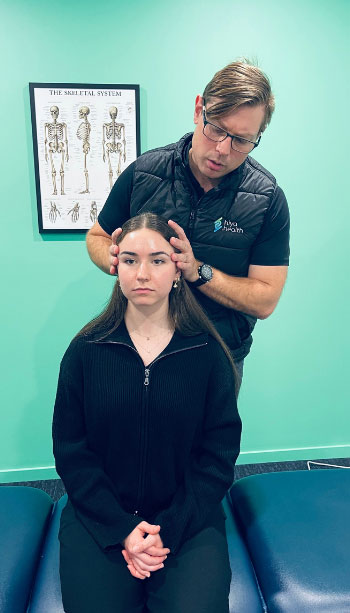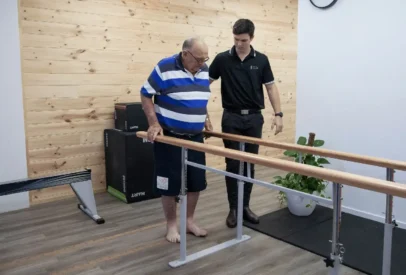The Role of Vitamin D in Bone Health

Hiya Health’s accredited dietitian Hilary Harris explains why Vitamin D is so important when it comes to bone health.
What is Vitamin D and what does it do?
Vitamin D is a fat-soluble vitamin essential for maintaining strong and healthy bones. It plays a crucial role in enhancing calcium absorption from the small intestine and ensuring calcium is deposited into bones rather than circulating freely in the bloodstream. This process is vital for bone density and overall skeletal strength.
Vitamin D exists in two primary forms:
D3 (cholecalciferol): Produced by the body when the skin is exposed to sunlight.
D2 (ergocalciferol): Obtained through dietary sources, though it has lower bioavailability than D3. This makes sunlight exposure the most effective way to meet Vitamin D needs
Daily requirements of Vitamin D for Bone Health:
Adequate Vitamin D intake varies by age and gender, as bones become more vulnerable with age. Here are the recommended daily intakes:
Males:
- 19-50 years: 5.0 µg/day
- 51-70 years: 10 µg/day
- >70 years: 15 µg/day
Females:
- 19-50 years: 5.0 µg/day
- 51-70 years: 10 µg/day
- >70 years: 15 µg/day
Bone-Strengthening Food Sources of Vitamin D
In addition to sunlight, certain foods can help improve your Vitamin D levels and support bone health. These include:
- Fatty fish: Salmon, herring, sardines, mackerel
- Eggs
- Mushrooms: Especially those exposed to sunlight
- Fortified products: Full-fat fortified milk, yogurt, and margarines
Pro Tip: Leave mushrooms in direct sunlight for 20 minutes before consuming to significantly boost their Vitamin D content.
Sunlight and Its Impact on Bone Health
Regular sunlight exposure is a natural and efficient way to maintain Vitamin D levels essential for bone health. Aim to expose your face, hands, and forearms without sunscreen for 15-30 minutes, 2-3 times per week to achieve approximately 15 µg/day of Vitamin D.
Note: People with darker skin pigmentation may need longer exposure due to higher melanin levels, which reduce Vitamin D synthesis.
Supplementing Vitamin D for Bone Health
Supplements may be necessary to maintain strong bones under the following conditions:
- Low Vitamin D levels: Confirmed through a blood test.
- Osteoporosis or risk of bone stress injuries: To prevent further bone density loss and promote recovery.
Summary
Vitamin D is indispensable for bone health, ensuring optimal calcium absorption and deposition in the bones. Sunlight is the most effective source, but foods like fatty fish, eggs, and fortified dairy products can also contribute. As bone health needs change with age, maintaining adequate Vitamin D levels becomes increasingly important. When sun exposure or diet isn’t sufficient, supplementation may be required to support strong and healthy bones. Simple lifestyle adjustments can go a long way in protecting your skeletal health.
Get help from a dietitian today
If you are experiencing symptoms relating to nutrient deficiencies, or would like to discuss your diet, our experienced dietitians might be able to help – why not book an initial appointment today?
Author: Hilary Harris, Accredited Dietitian – Caboolture, Redcliffe, Paddington clinics
Subscribe to e-news
Receive the latest health tips and news straight to your inbox






















